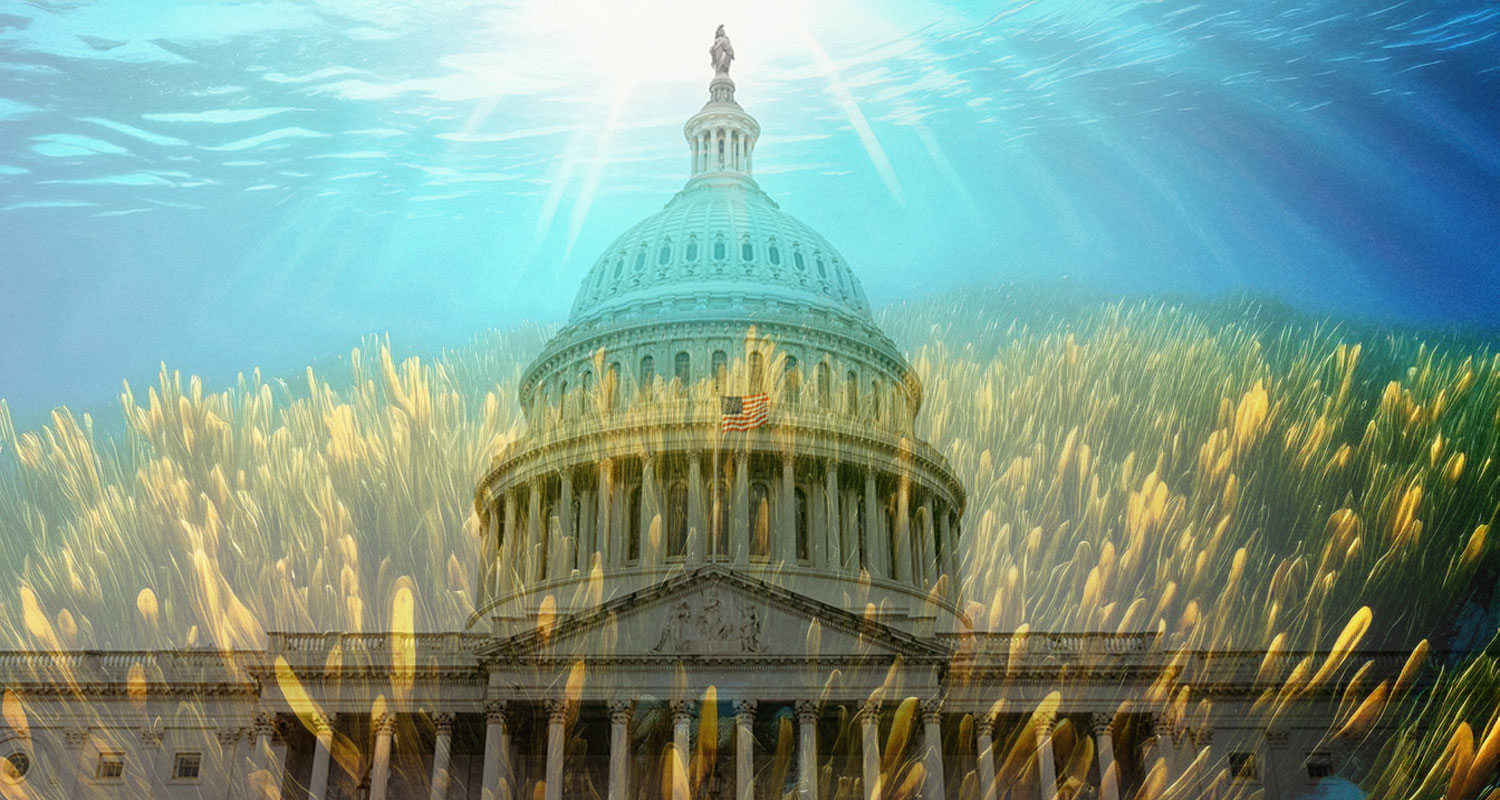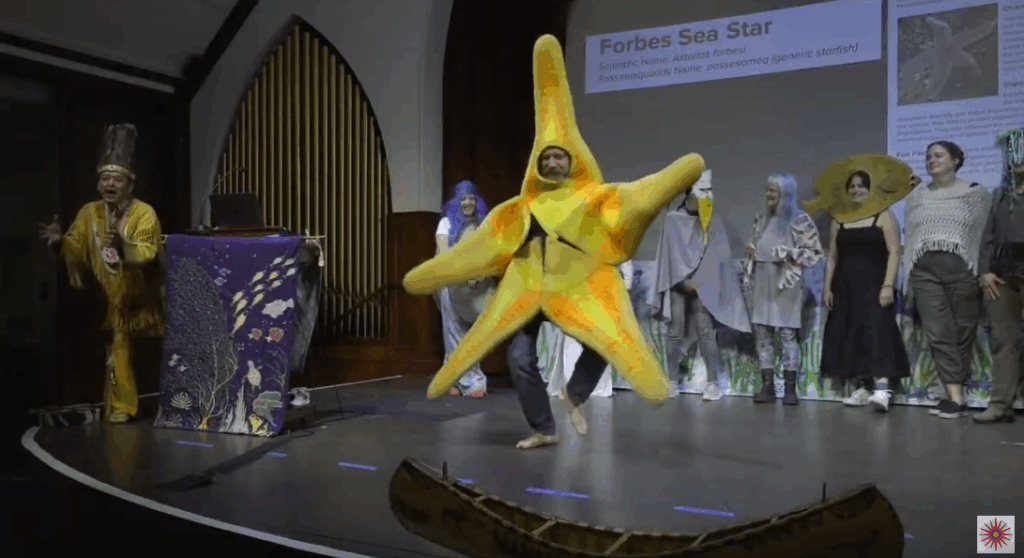
27 May Fighting climate threats by raising our voices together
This month’s insight holds two kinds of stories. One story is about this dark, fearful moment the planet and the activists who work on her behalf are facing. Another is about the joy and creativity and community spirit that rose here in Freeport this month while doing that work.
First, I will tell you the dark-filled story, then the light-filled story will follow and, I hope, fortify your spirit as it did mine.
I won’t pretend that May 22’s late-night move in Washington by House Republicans to adopt a Big Beautiful Budget Bill didn’t land like a gut-punch to my heart and spirit. Having spent the last four years in this small but beautiful organization, FreeportCAN, working with neighbors and other climate activists throughout the state to lower our carbon emissions and preserve a livable planet for all of us, including the bees and the butterflies, I was demoralized when I read that this budget bill removes all subsidies, rebates and tax breaks for existing and future solar, battery, home weatherization, and electric car purchases. This new budget, will, in short order, as Bill McKibben outlines in his newsletter, dramatically increase the amount of carbon in the atmosphere and the oceans and raise the cost of electricity. Here is summary of the bill’s impact from Princeton’s Jesse Jenkins and his team at REPEAT (Rapid Energy Policy Evaluation and Toolkit:
- Increase U.S. greenhouse gas emissions by roughly 0.5 billion metric tons per year in 2030 and more than 1 billion metric tons per year in 2035.
- Raise U.S. household and business energy expenditures by 25 billion USD annually in 2030 and over 50 billion USD in 2035.
- Increase average U.S. household energy costs by roughly 100 to 160 dollars per household per year in 2030 roughly 270 to 415 dollars per household per year in 2035.
- Reduces cumulative capital investment in U.S. electricity and clean fuels production by 1 trillion dollars from 2025-2035.
- Imperil a total of 522 billion dollars in announced but pending investments in U.S. clean energy supply and manufacturing.
- Reduce annual sales of electric vehicles by roughly 40% in 2030 and end America’s battery manufacturing boom.
- Substantially slow electricity capacity additions, raising national average retail electricity rates and monthly household electricity bills by about 9% in 2030 — and as much as 17% in some states.
But! There’s still a chance to find some brave souls in the Senate who could put an end to this cruel bill.
Oh Susan! Oh Susan! Now is your Margaret Chase Smith moment. Imagine if, when this bill goes to the Senate after Memorial Day weekend, you find the courage to vote no. Imagine how much we would celebrate you here in Maine. Imagine how you would be remembered.
Oh! FreeportCAN folks, now is our time to imagine that we could persuade Susan to vote against that bill by our calls and emails to her this weekend. (I know, I know it’s a long shot but long shots sometimes hit their mark!) If any of you know her or anyone on her staff, now is the time to reach out to her. Her vote could change the world as we know it: for good or for bad, for thriving or for declining.
Please contact Susan Collins today by email or phone: 207-618-5560
And now for the light-filled stories!
In early May, I co-facilitated with Johannah Blackmun from A Climate to Thrive, a program for climate leaders throughout the state to share their reactions to the changed political framework that now surrounds our work. About fifty people from thirty different organizations showed up at the Smith Center at Wolfe Neck to share their reactions and to brainstorm ways for us to reimagine our work in this moment. Most of us do our work in small silos and so the chance to be with others who are experiencing the confusion and anger and loss triggered by this moment was a very powerful opportunity for connection and validation. At the end of the meeting, fifty of us formed a big circle and held hands. Attendees shared their gratitude, their hope, their rejuvenated spirit and their wish to come together again.
Then, a few days ago, in a FreeportCAN sponsored event at Meetinghouse Arts called Becoming Seagrass, I was transformed into a blue heron! I stood onstage with the other creatures from my sea meadow home: the horseshoe crab and the flounder and the lobster and together we all followed the drum beat of Passamaquoddy storyteller Dwayne Tomah and joined hands with the audience and participated in a joy filled snake dance around the pews and down the aisles of Meetinghouse Arts.
The sea grass meadows are all threatened by climate change and here at home those meadows have lost more than 80% of their density. This evening was devoted to learning about the efforts of Cobalt to restore those meadows here and around the world. Indigenous teaching holds that we are not separate from Mother Earth. Feeling that connection is not easy for those of us raised in a Western culture that teaches us that Nature is a resource to plunder at our will, rather than a relationship. This creative production designed and written and produced by Glenn Page and his interns afforded everyone in the theater the opportunity to dissolve those boundaries and embody ourselves as both humans and sea creatures. Again, the people who attended left feeling joyful, connected and I hope, reenergized for the work of protecting Our Mother. You can watch the whole performance here. https://www.youtube.com/live/pPOUZVg9uRM



